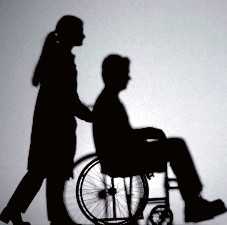The National Research Council has recommended a series of actions to meet the likely increased demand for home use of medical devices and health information technology. The study was sponsored by the Agency for Healthcare Research and Quality (AHRQ), a division of the Department of Health and Human Services.
The 11 recommendations for other agencies and professional associations, are in a report aimed at the trend of shifting health care to the home. While home health care may have cost advantages as well as keeping the patient in familiar surroundings, performing health care in the home often involves difficult tasks with unfamiliar equipment, in environments not designed for these activities.
Of particular concern are human-systems interactions, often called human factors. If providing health care to oneself or for others exceeds the capacities of individuals, the safety, effectiveness, and efficiency of the care will suffer. Four of the recommendation deal specifically with further research and development.
The recommendations include:
– Develop regulations and certifications of medical devices and technologies, and requirements of evidence that manufacturers follow user-centered design and validation, as well as accessibility guidelines.
– Establish design guidelines and standards for consumer health information technologies related to home-based health care.
– Create new standards based on human factors research for labeling and instructional materials on medical devices designed for home or lay use.
– Improve adverse event reporting systems to make them easier for lay users and professionals to report data, and make the systems more useful to identify the root causes of events.
– Develop appropriate standards that prepare professional caregivers to provide care in the home, develop appropriate informational and training materials for informal caregivers, and guidance to work effectively with other people involved.
– Ease adequate and appropriate access to health- and safety-related home modifications, especially for those who cannot afford them.
– Develop strategies, including tax incentives and local zoning ordinances, that promote increased housing accessibility and universal design in all segments of the market.
– Support human factors–based research by AHRQ on barriers to coordination of health care services delivered in the home and support user-centered development and evaluation of programs that may overcome these barriers.
– Establish a medical device database at FDA for physicians and pharmacists when selecting devices to prescribe or recommend for people receiving or self-administering health care in the home.
– Conduct surveys to collect data on demographic and health characteristics of individuals receiving care in the home, attributes of formal and informal caregivers and the nature of the care provided, and the residential settings where care recipients live.
– Develop assessment tools for home-based health care that analyze the demands of tasks associated with home-based health care, capabilities of operators required to carry them out.
Read more: Profs Develop, Patent Device to Encourage Senior Exercise
* * *


 RSS - Posts
RSS - Posts
You must be logged in to post a comment.